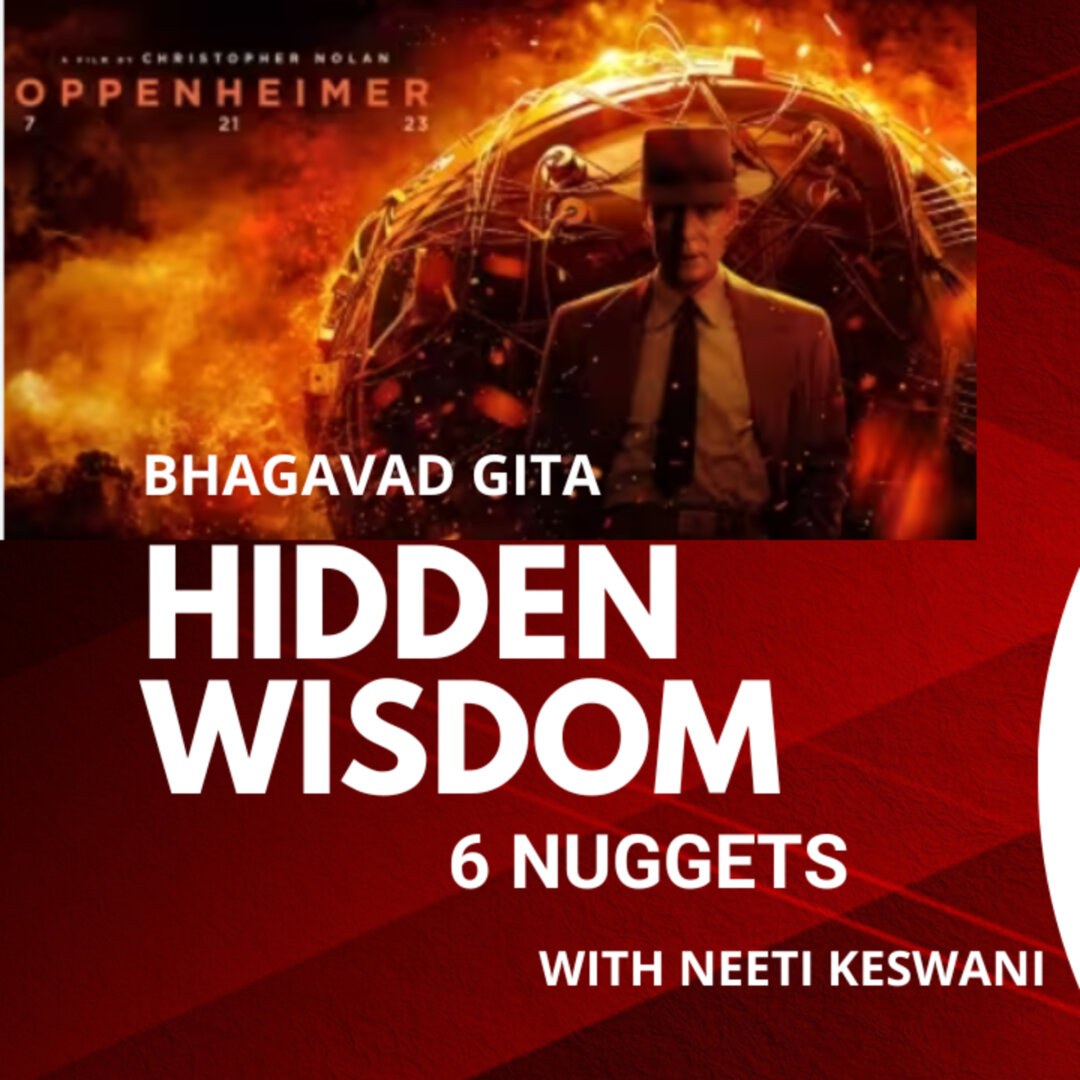Unveiling connection of Oppenheimer with Bhagavad Gita: Why Oppenheimer (Father of Atomic Bomb) Quoted Bhagavad Gita – REAL Story Behind Oppenheimer Christopher Nolan’s Movie Practical Lessons from Sri Krishna’s life | Janmashtami Special
REAL Story Behind Oppenheimer – The Father Of Atomic Bomb #shorts Discover the hidden wisdom of Oppenheimer and Bhagavad Gita
“Now, I am become Death, the destroyer of worlds.” These words are a a paraphrase of Bhagavad Gita 11:32 where Krishna, an avatar of Vishnu – whom many Hindus think of as the supreme being – says that he is kala, or time.
When J. Robert Oppenheimer quoted this, after witnessing the first successful test of an atomic bomb in 1945 from the Bhagavad Gita from Chapter 11, Verse 32 while looking at the erupting fireball from the atomic bomb, it drew controversies.
——————————————————————————————————————–
Our channel offers a unique opportunity to not only explore the profound wisdom of the Bhagavad Gita but also apply its timeless knowledge to your business endeavors, all within your busy schedule.
Can Luxury and Spirituality co-exist?
Luxury Unplugged Podcast offers a unique blend of Success Stories, Lifestyle Stories Travel stories while having a Spiritual mindset.
We focus on practical enlightenment, providing practical tips on finding inner peace, purpose, and happiness, and tips on how to balance your sanity with your desire for a luxurious life.
As the host of the podcast, Founder of Plush-ink.com, and Author of the bestselling book ‘Live Your Dreams’ I am on a mission to touch 1 million lives in 2023.
Luxury Unplugged Podcast is an excellent resource for anyone looking to live a balanced fulfilling life, while still enjoying luxury travel and work-life balance
Subscribe today to keep getting awesome tips and hacks!
For Sponsorships and Collaborations, contact: info@plush-ink.com
Listen to Luxury Unplugged Podcast on: Spotify| Apple Podcasts | Google Podcasts
Buy Book: http://amzn.to/2osPaok
– For sponsorships and collaborations: info@plush-ink.com




No Comments